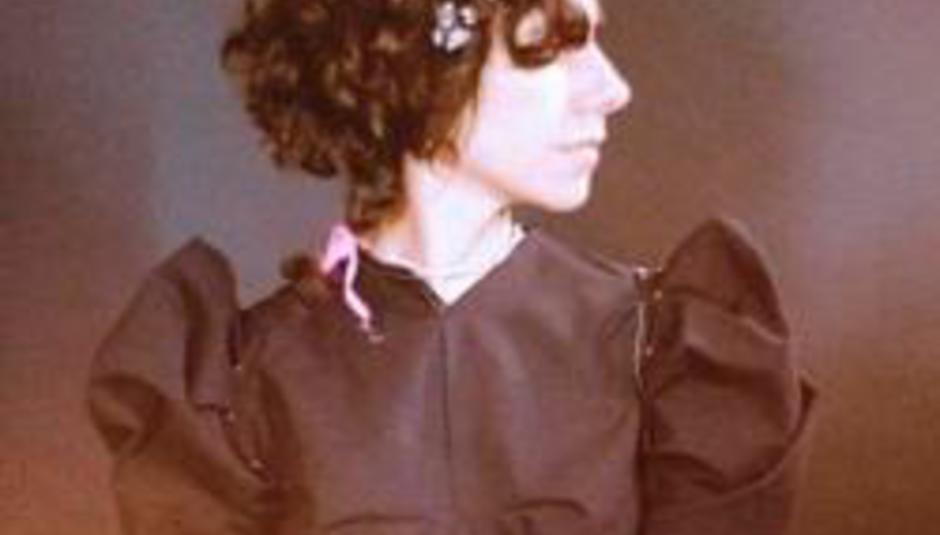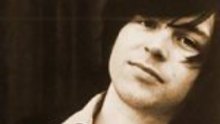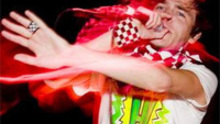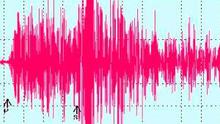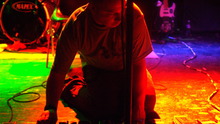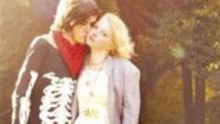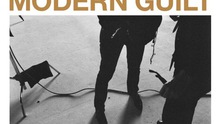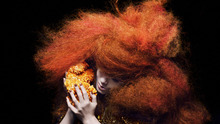There’s something to be said for those rules about first impressions. On first hearing PJ Harvey, many moons ago in some smoke-filled loft at a debauched summer house party as the sun was lifting the twilight outside, a sense of awe entered the room as the fuzz of something of its time had us by its hooks. It was a little bit Tricky, a touch Portishead, had a smudge of grunge, a sniff of something sexy and something a bit androgynous; it gripped everyone in the room.
Fast forward a few years and after much critical acclaim – which built an ever-growing, discerning and somewhat obsessive fan base – the same girl, now a lady, wins the Mercury Music Prize and is thrown from her cult-rock pedestal into the wolf pit of the masses with, debatably, her most commercial album to date. Then – maybe it was a finger in the limelight, or maybe just a natural progression, or perhaps a result of exposure – 2004’s long-player Uh Huh Her was a visceral wrong-footer, not unlike plugging in an electric guitar at a folk gig.
However, Uh Huh Her was a special part of Harvey’s legacy, which live helped everything become these petrol-soaked, sludge-drenched scathing refrains like ‘Who The Fuck?’. It was abhorrent for those expecting this nice girl with the pirate-twang on her vowels to make something pleasant which could be cranked out at fashion shows, or slipped in the background of Top Gear. That would have been easy, obvious and the careerist, fanbase crushing thing to have done. It also would have been boring and against all the artistic wonder of this slight frame of a lady who whispered or lurched at you through the speakers and it was, quite simply, a thing of wonder. With its bass lines throbbing like broken exhausts it was also a thing of fear for the masses sitting in their land of slop. At her most powerful, not least in her state of undress at Reading 2004, this was an even more important and iconic moment not just for Polly Jean Harvey but for the undercurrents and tone of modern rock.
This, however, wasn’t a massive skyscraper leap or departure from any of the grand rockola and dark brood she’d done before, as even on her ‘most commercial’ album Stories From The City, Stories From The Sea (the Mercury winner) she had big ol’ bruisers like this...
'Wicked Tongue' live at the Reading Festival, 2004
Strange then that the follow-up to Uh Huh Her, her eighth studio album White Chalk is, on first impressions at least, contrastingly her most adrift of modern soundscapes and her softest album to date, not least when it was unveiled in Manchester earlier this year…
Blog Excerpt: Manchester 7/7/07
…of course, with a new album out in September we're treated to a smattering of new songs. The four she plays tonight all have a ghostly, sepulchral air about them. The lazy will opine these were left hanging around Kate Bush's pantry but on first listen there's something bigger than mere pain and suburban madness; something reaching beyond creative abandonment and breaking through into Vespertine territory. Polly sits at the piano for all the newies, each one plunging you into a twilit haze, with near-falsetto vocals unfurl at the ends like Thom Yorke at his most plaintive. You can see the dew in the moonlight. Yet, this isn't what I was expecting, they are all as soft as the first snow of winter, and the songs seem like frames for something huge. It’s a somewhat welcome departure from the scathing, scratchy, scar-covered Uh Huh Her. There's 'The Devil', a cockle-tickling tune which requires a metronome ("for an amateur like me"). 'Silence' and 'The Mountain' _ are both equally lush and fairly similar, except for a harmonica on the latter. The cynical side of me wonders if this is an overly stripped-down tease to wrong foot the bootleggers. If the new album is anything like the title track _'White Chalk' then makers of albums-of-the-year lists better prepare for a new entry. On first listen these new songs draw you right in: 'White Chalk', the track, is a little like 'The Garden', from debatably her finest album Is This Desire?, and depicts the Dorset she (and I) grew up in with a vivid ache beside those crumbling cliffs and cold salty seas, which is bound to see some draw some further lazy comparisons to our only other local legend, Thomas Hardy.
When the White Chalk promo copy arrived there was that rare sparkle of excitement and apprehension in the DiS office. We were curious whether first single ’When Under Ether’, which we’d heard on 6Music, and the tracks premiered live were merely the soft piano ballads from the album or whether she was revealing the skeletons on which things are hung. But lo! The album arrived and they were all slender and rather like this…
'When Under Ether' promotional video
After several listens, when you’ve led your preconceptions to rest and things begin to get comfortable, something rather special happens with White Chalk that only glimmered in previous albums on songs like ‘C’mon Billy’ and ‘Desperate Kingdom of Love’; something which washes over you and is transcendent. Rather than intensify your emotions or muddying your thoughts it's a collection of songs which lightly blows away every little pixel in your head and replaces it with imagery that’s at first milken, then cloudy, but which becomes something so near-transparent that it's utterly timeless. Neither old nor young. It's desolate, like a child left behind. It could be at the end of the world or back with the tiny grains of sand tickled by the breeze during those first signs of creation. This is Polly Jean Harvey more refined and chilled, the way you'd imagine her at 72, fulfilling all those eccentric lady with the cats clichés she's been lambasted with. Or is this, rather, the reminder that she's one of most important artists in the world today? In a land beyond mere mortals like us, a place where myths reside, writing a letter to Thom whilst hanging out in the desert with Grohl and Homme. Real rock 'n' roll aristocracy, as it were. With a shaky fear of first impressions, DiS got her on the phone for a quick chat to gain a greater understanding of the new album, to find out whether she's lost the plot with lyrics about singing to her gran’s grave or whether she really is, as we expect, doing something special.
Hello, is that Polly? How are you feeling today?
I’m alright thanks. I’m down in Dorset where it’s a bit blustery, windy and cold where I am but apart from that’s it’s okay. It’s quite a beautiful day today.
What can you see from where you’re sat right now?
I can see the sea, the cliffs, the Jurassic coastline, Portland, Weymouth, a large rain cloud…
I know it well. Your records always make me feel quite homesick as Weymouth’s where I grew up, over in Wyke Regis.
Oh really? Were you born and bred in Dorset? I used to go to Wyke Regis all the time as a kid because my grandparents lived there, and we’d go there every other weekend and stay with them. I adored my granny and granddad.
Did you used to be there when I was coming to Verdi’s? (A now closed-down local music venue.) I used to go there aged 16 onwards. It used to be the most exciting nightclub for me, because it was the first time I started going out with friends really. Most of my friends were older than me and they took me down. God, we used to have some good bands come and play there. My mum would put them on in village halls more inland, and one of the nights, usually Saturday nights, we’d be down at Verdi’s. That was like Blues n Trouble, Diz and the Doormen, Rocket 88, Juice on the Loose and all that lot. Ahh, yeah, that was a good time.
Lots of people seem to want to say that this record, because of the allusions to cliffs and the pace of life, is anchored in our part of the world. I guess because there are trends with a lot of records recently, especially bands like the Arctic Monkeys, people seem to want to ground things geographically in this globalised world. But the record, to me at least, doesn’t sound like it’s made to sound like it has come from any one place. If anything, it almost sounds like it could be from anywhere and at anytime?
It’s peculiar how people really want to pigeonhole things, and say this album is this, and this album is this. I can remember from Stories From The City…, everybody was saying, “This is the New York album”. And it actually wasn’t. It’s the same with this record: I was living in cities almost entirely during the writing of this record. Yes, I’ve moved back to Dorset now, but I haven’t been back in Dorset for that long. I was living in lots of different places and very rarely in this country, let alone country, during the writing of this.
Do you think you were maybe thinking about where you grew up, not in a homesick way but in an idealised way because you weren’t there?
I do agree with that. Especially when you’ve grown up in the countryside. I think I do certainly miss the countryside when I’m not in it, enormously. Not in the way I have to go back there, but I feel more aware of my knowledge of countryside when I’m in cities. It’s that classic case: you’re quite blinkered to the things around you when you’re there. You just go about your day-to-day life and forget what’s actually going on right in front of your nose. And I think being away from it I sort of access that imagination; I imagine the countryside or remembered what it looked like and felt like and smelt like and I think that informed the songs probably a lot more than if I’d actually been in Dorset.
’Grow, Grow, Grow’ filmed live for French TV.
I always get this feeling that being away, especially in cities, helps you really appreciate the differences in the pace of life?
Definitely, because I go to cities and I think, “Oh my God, isn’t it beautiful here?”. I look at skyscrapers or I look at buildings with lights on at night. Or I look at roads with lines and lines of traffic and the headlights and the taillights, three rows of traffic and I think,_ “Oh it’s so beautiful!”, and shop windows lit up at nights. You know, when people say, _“Oh, it must be beautiful down there”, I think,_ “Well, your city is beautiful actually”_.
You mentioned earlier you were away a lot. Whereabouts were you when you were writing this record and when was it, because you started playing new songs last May didn’t you?
Yeah yeah, that’s right. The record took a long time to write. I started writing when I came off tour. So, it was the beginning of 2005. I’d been on tour for most of 2004 with the Uh Huh Her album and I started writing in the spring of 2005 and I didn’t finish 'til we went in to record. We started recording last November, so quite a few years later! It was wherever I happened to be, really. I made a few trips to Paris, to Los Angeles, to New York, to London, to Bristol. Wherever I was, I was sort of thinking of ideas, collecting words.
Do you have a tried and tested songwriting process? It seems like it’d be slightly different for a record like this than for one of your more guitar-focused albums? Do you treat yourself as a songwriter and apply to yourself to an instrument?
I think I’ve finally come to realise, quite recently actually, over the last year or so, that yes I am a songwriter. I’m not particularly a musician because I think a large amount of the work actually goes on in my head more than anything else, and I almost use instruments just as tools in order to bring the song to fruition. The song is much more to do with the thought that’s gone behind it, the words I’ve slowly collected, the atmosphere and visuals that I have. Songs are very visual for me, almost like little films that I see, and characters that I see in them. I want to make this atmosphere happen; I’m very filmic in that way. And so yeah, I think I am a songwriter in that sense. And I have to come to an instrument, but I have found that’s also very useful. I tend not to be a great player, either on the guitar or piano or anything. I’m a very rudimentary player because I wouldn’t touch an instrument for months at a time, I have no desire to play them, so I may not play for six months or a year if I don’t have to. I just play them when I need to because I’ve got to make a bed for this song to lie on.
With the collection of words and imagery, are there any defining things in particular for you, which you patched together to make this record?
No more than any other record. I think I’m completely just informed by being alive. That’s it really, it’s just life. It’s just everyday life. Everything from the mundane parts of life that we all have to go through, to the more wonderful enlightening parts of some piece of artwork that I might see that blows my mind or a film that’s amazed me. Or it might just be seeing rain pooling on the window, or it might be seeing somebody laugh. It could be anything. It’s just about reflecting something from some of the information that I receive everyday. That’s everything from a personal to universal level, from the news that you read and hear, to conversations, to things that happen to you first hand. It’s just this whole mismatch of everything, from every book I’ve ever read and every feeling I’ve ever had, to every news story I’ve ever read. It just goes on and on and on.
In fact it always amazes me how sometimes a melody can produce itself. That melody that comes, I probably thought of it initially ten years earlier. It came because I’d been to, I don’t know, an exhibition somewhere and I’d seen some piece of writing by somebody that had made me think these words and melody in my head, and then it comes back around. There was no particular thing. I think if there was any particular thing that brings about any record, it to do with the time and place that you’re at in your life, I mean emotionally, and through the wisdom of getting older, it’s probably only now that I could write these songs. Whereas songs that I wrote 15 years ago, I couldn’t do those now. It’s just right time and write place for everything and then the material produces itself really.
With this album, the sounds are what people would call traditionally more mature, especially with the choice of piano to be at the heart of the album. But, lyrically, there are quite a lot of childlike visions. Was that a conscious decision to contrast the two concepts?
Well I definitely was very interested in trying to access that childhood imagination, or childhood capacity for imagination. I was thinking a lot about that. It’s almost like we just stop flexing this muscle, which is our fantasy-imagination muscle, as we get older. Probably because of the practical things you do when you become an adult. For children it’s never ending, there’s a landscape of anything you’ve ever wanted anything to be, and I thought: does that go away? I began to experiment with my writing of just dipping into complete fabrication of stories or making something up, letting my mind go anywhere I wanted to with no holds barred. That was very much what this record was about, experimenting with that. It’s something that I’m enormously enjoying and exploring more through writing. There are no rules, and you can make anything up you want to. And what’s the difference anyway? What’s the difference between reality and fiction? What’s the difference between being asleep and being awake? Nothing. I can’t see the difference, really.
Do you hope that it would stir those feelings in people and possibly give a sense that anything is possible? Or are you making it for yourself to go through that sort of cathartic process?
It’s not a catharsis process by any means. I’ve never ever felt that. That’s always been a word that people have applied to me. I’ve never felt any sort of healing or cathartic process and largely the songs aren’t about me anyway – they’re more about expressing the human condition in a myriad of ways. I just want to express feeling, what it’s like to be human, or atmospheres. I don’t think about the end result when I’m making things. I certainly don’t think about how I want to make people feel, because I’d be crippled with fear. I couldn’t possibly write if I thought about those things, about how it will be received. It’s not something I can fill myself with when I’m doing my work. But, at the end result, when a record’s being finished, if I hope for anything it’s for people to feel something. Sometimes I think I’m happier if people intensely hate the record or intensely love it but just so they’re moved one way or the other. You know, to not have any affect would be awful but to have some sort of movement of some kind, that’s all I really try to do.
* I’m sure you must hate a lot of the media attention and criticism. I read somewhere that when you finish a record there’s people you send it to: Nick Cave, and Beefheart. Is that something you’ve done with this record?*
I always have these very long-term, trusted friends who I rely on for their hard criticism. I know they will criticise me in a very good way, so that I can get better at what I do with. And yeah, I still send my demo tapes to those people: Flood (who produced this album), John Parish (long-time collaborator/band member), Vincent Gallo and Captain Beefheart, who I call Don Van Vliet. I always send them tapes first because they’re my favourite critics and they’re very hard on me.
You’ve worked with a lot of people on different projects between albums: is there anything you’re working on at the moment, or done recently?
Actually I’ve finished writing a record with John Parish. He and I collaborated on a record in 1998 called Dance Hall at Louse Point and we felt it was about time to get together again because I’ve always been a big fan of John’s music and I love writing words to his music. So we did the same thing again. He gave me a set of music and I let my imagination wild over it. We’ve written that and we’re hoping to get it out next September. We’re recording it in the spring.
What have you been doing in the interim of finishing the record and now, apart from that, playing Manchester and a couple of festivals in the summer. Not meaning to distract from this album but have you been working on anything new?
I’m slowly pulling ideas, slowly-slowly. It’s a very long process for me. Gradually feeling where I’m going to be going next. There’s quite a lot of mental work going into that and also, I’ve had to practice an enormous amount to be able to play, being that I very rarely play instruments. I’ve been practising a lot because I’m playing solo shows at the moment – I’m not playing with a band. That’s actually quite a terrifying experience. I practise so that I can play. I'm really just looking after this record still, wanting to play it to people. Playing a few songs for television and doing some interviews for it. That’s really taking up my time.
‘White Chalk’ live for Danish TV
Is there any instrument you’re trying to learn? Had you really never played piano before this record?
I really wish my parents had made me play when I was a kid. I wish I’d been one of those kids who had been forced into piano lessons. I only came across a piano about two-and-a-half, maybe three years ago. I tried to have lessons but I’m just too thick now. I think when you’ve got your adult brain, you’re just unable to learn it. It was so frustrating. I ended up stopping having lessons and thought: just do it by ear. Just plonk about whenever you can. It’s all but done by ear, not any technical knowledge. In some ways, it’s a bonus because then it has to be about what something makes you feel.
White Chalk is out now via Island Records (review).

